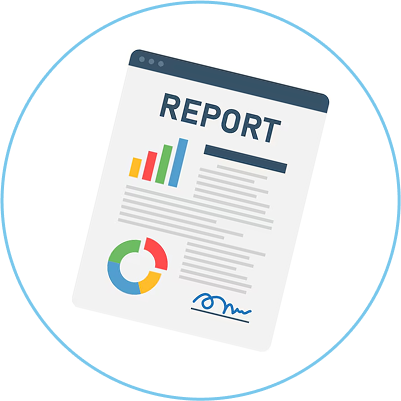Is Your Marketing Actually Working — or Just Keeping You Busy?
Blogs are more than just a simple form of content to share on social media. In addition to providing you with a space to share industry knowledge, provide long-form updates and connect with your audience, blogs provide a whole host of other benefits. Increased website traffic, enhanced SEO outcomes and consistent content updates can all be impacted by a successful blog. In this post, we'll explore the benefits of having a blog on your website and help you make an informed decision about whether it's the right choice for you, and how to implement a blog page on your website.
Providing fresh and relevant content for customers and clients to engage with can help you in more ways than building brand awareness. Here are just a few of the ways that a blog can add value to your online presence, and help drive overall business growth:
Search Engine Optimisation (SEO) is the key to getting your website noticed by search engines like Google, and blogs are a powerful tool in your SEO arsenal. When you regularly publish fresh and relevant content on your blog, search engines take notice and reward you with higher rankings. By strategically incorporating keywords and providing valuable information to your audience, you can attract organic traffic and increase your website's visibility.
A blog gives you the opportunity to showcase your knowledge and expertise in your industry. By consistently sharing valuable insights, tips, and industry trends, you position yourself as an authority figure, which builds trust and credibility with your audience, making them more likely to turn to you for guidance and consider your services or products when the time comes.
Blogs create a platform for meaningful interaction with your audience. By allowing comments on your blog posts, you can encourage discussions, gather feedback, and gain insights into your audience's interests and pain points. This engagement fosters a sense of community, strengthens relationships with your audience, ultimately leading to increased brand loyalty.
A well-crafted blog can be a powerful lead generation tool. By offering valuable content and providing opportunities for readers to engage further, such as subscribing to your newsletter or downloading a useful guide, you can capture leads and nurture them through your sales funnel. Additionally, strategic calls-to-action within your blog posts can direct visitors to relevant products or services, increasing the likelihood of conversions.
Not a set-and-forget scheme, blogs require regular updates to realise their full potential. To make the most of your blog, keep these tips in mind:
Establish a regular posting schedule that you can realistically maintain. Consistency is key, but remember that quality should never be sacrificed for quantity. Aim for a balance that allows you to provide valuable content consistently.
Research and incorporate relevant keywords in your blog posts to enhance their visibility to search engines. Write informative and engaging content that meets the needs of your audience, while also appealing to search engine algorithms. Research is key - finding and incorporating the keywords and concepts that your audience are looking for can help this process.

Don't wait for readers to magically find your blog. Promote it actively through social media channels, email marketing, and collaborations with influencers or industry partners. Guest blogging on reputable websites can also help expand your reach and attract new visitors to your blog.
While the benefits of having a blog are enticing, it's essential to consider a few factors before diving in:
Understand your target audience and their interests. What kind of content would resonate with them? Develop a content plan that aligns with their needs and addresses their pain points. This ensures that your blog provides value and attracts the right audience.
Consider the design and layout of your website. How can you seamlessly integrate a blog without compromising the user experience? Ensure that your blog is easy to find and navigate, so visitors can explore your content effortlessly.
Maintaining a blog requires time and resources. Assess whether you have the capacity to consistently create quality content, edit and proofread, and promote your blog. To ensure a well-executed blog strategy, you may need to delegate tasks or consider outsourcing certain aspects to industry experts like We Think Digital.
Incorporating a blog into your website can be a game-changer for your online presence. The benefits of improved SEO, establishing industry expertise, increasing engagement, and generating leads make it a valuable investment. However, it's essential to consider your goals, resources, and audience before embarking on this journey. With careful planning, consistent effort, and a strategic approach, a blog can unlock tremendous growth opportunities for your business. So, should your website have a blog? If you’ve got the experience, thoughts and ability to share, the potential rewards are certainly worth exploring!
If you're looking at taking the leap, the We Think Digital team is here to help. Contact us today to see how we can help take your online presence to new heights - from building the pages to crafting copy.